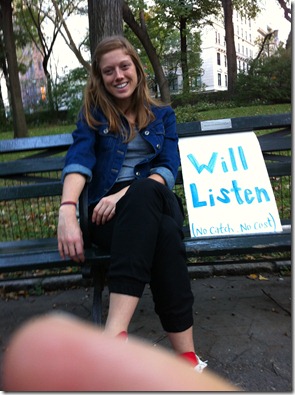In reading David Reynolds’ op-ed in the New York Times, Rescuing the Real Uncle Tom, I couldn’t help thinking about the parallels with Palestinians struggling to end the occupation.
Reynolds points out that the book “Uncle Tom’s Cabin” was among the greatest contributors to the emancipation of African-Americans, and that the original Uncle Tom had tremendous moral courage and pride in his heritage. Alas, Reynolds explains that partly due to the rendition of the book into a play where Uncle Tom was portrayed as a submissive “obedient old fool”, in the mid-20th century “younger, more radical activists” started demeaning civil rights leaders with the label as “Uncle Toms”:
It was this Uncle Tom, weakened both physically and spiritually, who became a synonym for a racial sellout by the mid-20th century. Black musicians, sports figures, even establishment civil rights leaders were all tarred with the “Uncle Tom” label, often by younger, more radical activists, as a way of demeaning them in the eyes of the African-American community.
Today, the vast majority of Palestinians would be willing to resolve the conflict with the recognition that they are destined to co-exist with Israelis and that thus there need to be two states for two people, and a significant number have the courage to stand up and lead the way towards a historic compromise, but a small minority of radical extremists with maximalist aims, exemplified most forcefully by groups like PACBI and the International Solidarity Movement, try to intimidate them and extinguish any hope for a compromise. They call them “collaborators” and “normalizers” which in Palestinian society is a word that connotes betrayal and acceptance of the status quo.
Nothing could be farther from the truth, though: Palestinian nationalists who support a Palestinian State but also recognize the right of Jews to have a homeland next to them in the State of Israel will ultimately be the ones that force the end of the occupation; these Palestinian nationalists who are willing to accept historic compromises have the moral authority to win. In contrast, extremists whose maximalist demands in the form of a “Greater Palestine” or the euphemistic “One State Solution” deny the rights of their neighbors are in fact condemning their people and the region towards eternal war through absolutist campaigns that amount to what I call, more aptly I believe, the One State Delusion, or the One State Illusion.
Reynolds points out that in the end, while extremists derided civil rights heroes as “Uncle Toms”, in fact, people like “Jackie Robinson, Louis Armstrong and Willie Mays, to name a few — are now seen as brave racial pioneers. Indeed, during the civil rights era it was those who most closely resembled Uncle Tom — Stowe’s Tom, not the sheepish one of popular myth — who proved most effective in promoting progress.”
Reynolds adds that “Rosa Parks didn’t mind the Uncle Tom label, since she believed that great change could result from nonviolent moral protest. The Rev. Dr. Martin Luther King Jr., though often called an Uncle Tom, also stuck to principled nonviolence.”
In the Palestinian case, too, the ultimate leaders that free the Palestinian people from the occupation – and free the Israelis from being occupiers – will be those who use non-violence and recognition of the humanity and human rights of both sides – to reclaim the agenda and achieve a two-state solution.
I should close by saying that a lot of these parallels can also be referenced in the case of Israelis. Israeli progressives are often also derided as traitors who harm the cause of Zionism. But the true harm to Zionism comes from the extremist Israelis who are holding on to a Greater Israel vision that would prove devastatingly painful to the legitimacy of Israel as a Jewish Democratic State.
Only when Israelis and Palestinians understand that neither side will have peace, security and freedom if the other one doesn’t have the same will they both fulfill their maximum aspirations.













